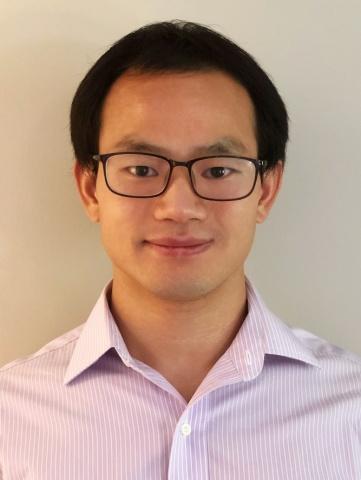
Yingkai “Kevin” Li, MD, PhD, knew that he wanted to specialize in neurology shortly after his first exposure to the neurological exam during his internship year. Now, more than a decade later, he’s using his clinical and research expertise in neurology to help patients with myasthenia gravis and other autoimmune neuromuscular conditions. For this week’s “Spotlight” interview, Li talks to us about balancing multiple projects in tandem, his research examining patients with myasthenia gravis during the COVID-19 pandemic, and looking forward to visiting friends without masks once the pandemic is over.
What are your current responsibilities within the Neurology Department? What does a typical day look like for you?
I am currently a postdoctoral associate in the Neurology Department with a concentration in autoimmune neuromuscular diseases. Coming to Duke with more than 10 years professional training in medicine and neurology, I want to help bridge the gap between biomarker research and clinical practice.
A typical day/week for me involves conducting experiments, attending lab/clinical meetings and seminars, writing papers and grants, and reading papers. The overall goal of my everyday work is to find a useful biomarker of the immune system that can predict the response of the medicine in myasthenia gravis patients.
How and when did you first get interested in neurology?
I first got interested in neurology when I rotated to the Neurology Department during my internship back in 2007. I saw that neurologists could use a simple physical examination to localize neurological lesions. From that moment, I was intrigued. Since then, I have specialized all my MD, residency, fellowship, and clinical practices in neurological disease.
You were the first author of a recent study examining the knowledge and perceptions of myasthenia gravis patients about the COVID-19 pandemic. What were the major findings of that study? What aspects of the study were the most surprising or interesting for you?
Patients with myasthenia gravis (MG) may be particularly vulnerable during the COVID-19 pandemic. Our goal for this continuing study has been to understand how patients are experiencing the COVID‐19 pandemic, including where they receive relevant information, how it has affected medical care, and what measures they use to protect themselves. The most surprising finding is that a large proportion of the MG population have been taking a lot of recommended precautions during the pandemic but remained very concerned (high GAD-7, or general anxiety disorder, scores).
Our study also found that the sources the MG patient community trusted the most were health care providers, the government, and Myasthenia Gravis Foundation of America (MGFA). These findings made us believe that the use of targeted messaging strategies by these groups to convey accurate information may increase effectiveness and lead to more informed patients with reduced anxiety. Our study is an ongoing survey research and as the pandemic evolves, we want to track how patient’s knowledge and perception change throughout the pandemic.
What do you enjoy most about your work?
As an aspiring research scientist with several years of clinical experience in myasthenia gravis I most enjoy using my clinical background and research skills to help improve evidence-based physician practice and patient outcome. My participation in the COVID-19 and MG related studies is one example. My day-to-day lab work to identify useful biomarkers for predicting MG treatment response is another.
What’s the hardest part of your job?
The hardest part of my job is managing multiple research projects in parallel. Also, I need more patience for my biomarker research studies because it is like looking for a precious needle in a haystack.
What are you most looking forward to once the COVID-19 pandemic is over?
Once the COVID-19 pandemic is over, I look forward to hanging out with friends freely and being able to see their beautiful smiles without a mask.
What other passions or hobbies do you have outside of the Department?
Outside of work, I often play soccer and tennis. I also like hiking, fishing, skiing and all kinds of team sports.

Li enjoys a day on the slopes in the photo above.